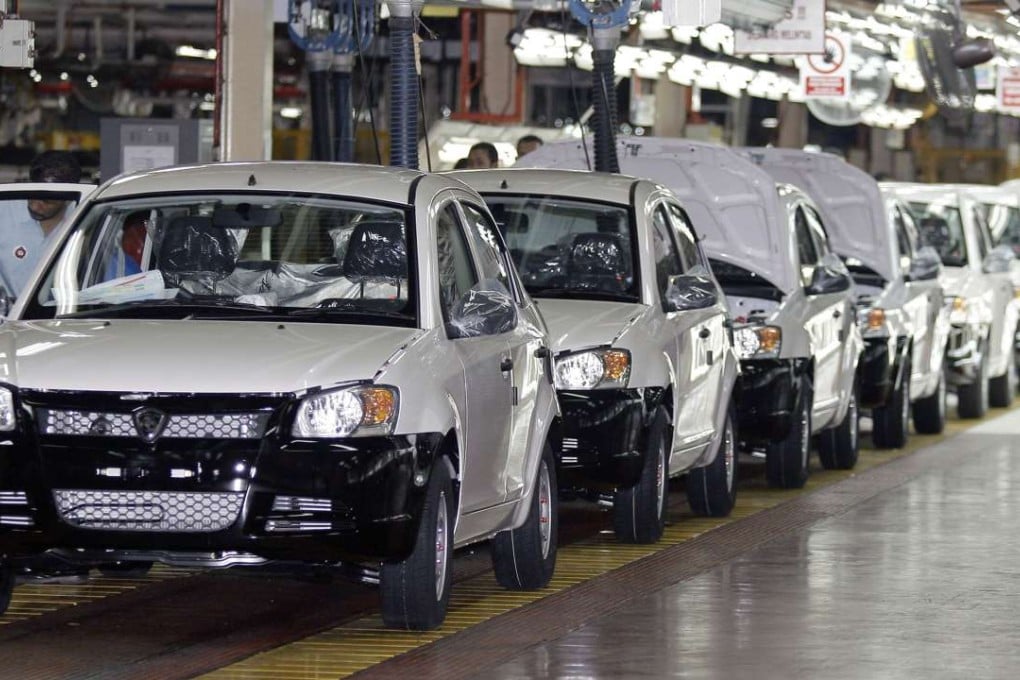The Proton Saga: why would Malaysia sell its ‘symbol of dignity’ to China?
An automobile that former prime minister Mahathir Mohamad described as ‘a symbol of Malaysians as a dignified people’ – and once voted ‘Man of the year’ – looks set for Chinese ownership in a saga that may run and run

China’s Geely Automobile Holdings has emerged the clear leader ahead of France’s Renault and Peugeot parent PSA in the queue of suitors for Malaysia’s Proton carmaker.
That’s great for Geely – the news it is in pole position to buy a 51 per cent controlling stake in the country’s largest carmaker has sent its shares to an all-time high (they have tripled in the last 12 months) and sets up its push into Southeast Asia. If the deal goes through, Geely will get access to Proton’s assembly line in Malaysia, allowing it to ship vehicles tax-free anywhere in the Association of Southeast Asian Nations block, a combined market of 623 million people.
Geely shares soar to record on report it’s buying Proton’s Malaysia car assembly
But the motivation on the other side is less clear. Just why is the Malaysian government marrying its favourite child off to a foreigner? It’s a particularly pertinent question given that, with an election widely predicted to be held this year, Prime Minister Najib Razak is already under fire regarding Chinese influence on the economy following his trip to Beijing in November that secured funding for infrastructure projects worth 143 billion ringgit. History, as ever, holds the answer.

The Malaysian National Car Project was conceived in 1979 by the former prime minister, Mahathir Mohamad (now a key critic of Najib), approved by the Cabinet in 1982 and established as Proton – Perusahaan Otomobil Nasional Berhad – in 1983. Mahathir thus became probably the only head of state to found and head a national automobile company. In 1985, Mahathir opened the Shah Alam plant. “The Proton Saga,” he declared of the first model, “is more than just a quality automobile. It is a symbol of Malaysians as a dignified people”.
Why Malaysia’s hopes for a post-racial politics are fading – even if Mahathir is not ‘anti-Chinese’
The word Saga was derived from a native Malaysian tree denoting resilience and indigenous identity, putting it alongside Germany’s Volkswagen, Italy’s Cinquecento and Russia’s Zhiguli (or Lada) as a car of the people, owned, funded and driven by the citizens of an emerging industrial nation on the road to prosperity in a globalising economy.